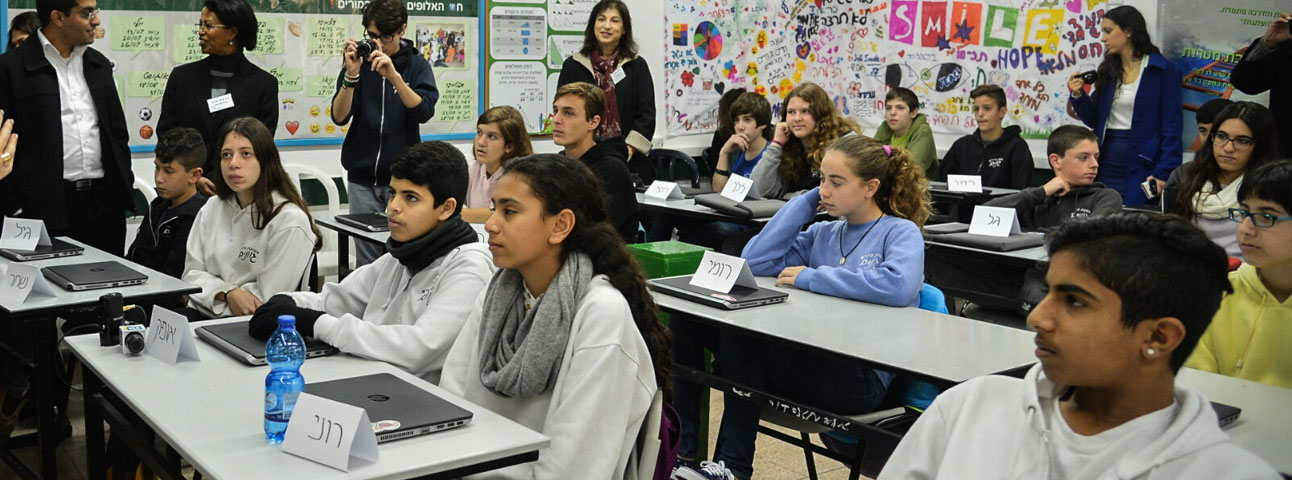Reimagining Education
COVID-19 is an opportunity to rethink education - and the success of a handful of teachers and students during the pandemic points the way forward to schooling that aligns with tomorrow's needs

Flash 90
It will come as no surprise that our education system is not in good shape following the current crisis. These were very long months in which teachers were stretched beyond capacity. They were pressured from all sides, resulting in a very basic educational package. And now, everyone is exhausted.
The frequent and often frantic fluctuations between learning at home and the inconsistency of in-school studies made it almost impossible for teachers and students to maintain educational continuity. As a result, our children will return to school with huge intellectual, social, and emotional gaps.
The existing gaps between Jewish and Arab students and between students from the center and from the periphery have increased further. Bridging these gaps will require public trust, leadership, and resilience – all severely undermined during the crisis.
Yet, the crisis uncovered another gap – a gap that can be seen as an opportunity. This is the gap between what is traditionally taught in school and the real world around us today. To put it bluntly, children are bored in school and we all know it.
We force them to go every morning, to sit quietly and listen, while the teacher dictates and they copy. Then they try and memorize as much as they can. However, when they moved to a home-based learning environment, these external routines evaporated and the students had to get organized by themselves. They had to become highly motivated self-learners. They had to study alone and in groups, to explain their arguments, to think critically and creatively, and to use technology. Unexpectedly, the skills that they are now practicing in their learning are the same skills their parents use in their work.
The problem is that only a few intrinsically motivated students with excellent teachers have leapfrogged into this new era. Only a handful did not sink into the temptations of Instagram and Netflix. One must applaud these students and, above all, their teachers.
These excellent teachers did not freeze nor did they copy their in-school teaching practice to Zoom. What they did in the small learning groups, even with reduced teaching hours, was a result of a courageous professional judgment. They chose quality over quantity.
Instead of running fast and shallow in order to cover as many items from the textbook, they decided to dive deep into the most important stuff. They did not suffice with surface learning that will be forgotten by the end of the mid-term test; rather, they aimed for application, thinking, and understanding.
Now, the storm is apparently nearing its end with vaccines already approved. The human craving for nostalgia will certainly play a major role now, because we all want to get back to our previous routines. We want our lives back and we need our schools to return to normal.
However, just as we are not nostalgic for spending two hours in a traffic jam neither are our children yearning to sit in a boring classroom. It is time for us to reimagine education and to make it more challenging and relevant to their lives.
During the pandemic we all learned how important knowledge, science, and technology are for our lives. Formulas and models flooded our screens and scientists became the heroes of our time. This period has provided a significant motivational boost for children, and the time for education is now. They do not have time to spare; the gaps have widened and they need to be better prepared. We must ask them, as well as their parents and teachers, what sort of education they want and what support they need in order to learn effectively.
It is time to join hands and trust each other. Education is important to all of us; it belongs to all of us. No one can do it alone. We need to sit together to define a shared vision and design a joint roadmap to realize it. It is time to prepare a serious education plan for the day after the pandemic.
This is our social contract with the younger generation. It is our most basic promise to them. Our children want to learn, they want to succeed in life, and they are willing to work hard for it. It may sound like a cliché, but it is completely true. They need us to be there for them now.
The article was published in the Times of Israel.
Eli Hurvitz is the executive director of the Jules and Eddie Trump Family Foundation, which is dedicated to expanding the circle of excellence in mathematics and science studies in middle schools in Israel.
